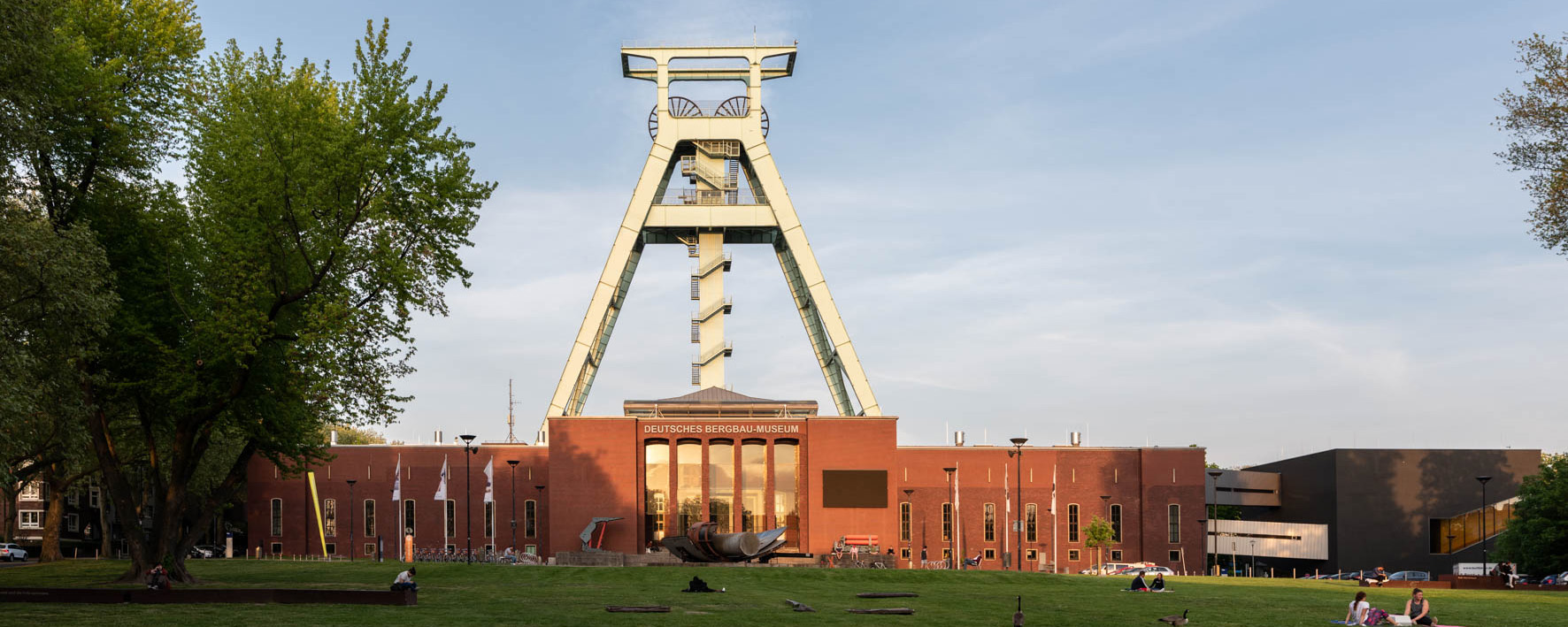
PhD position (m/f/d) as part of the research project ‘Mining frontiers in the Kingdom of Hungary (16th-18th century).
The Mining History Research Unit at the Deutsches Bergbaumuseum Bochum invites applications for a PhD position as part of the research project “Mining Frontiers in the Kingdom of Hungary (16th-18th Century)”, funded by the Leibniz Association for three years beginning on March 1, 2025. The employment is based on the in-house wage agreement of DMT-LB. The salary is equivalent to a 75% position according to TV-L E 13.
The position is limited to 36 months.
The PhD position at Bochum contributes to the larger project “Commodity Frontiers in Eastern Europe: Environment and Societies at Global Risk (16th-21st Centuries)”, in collaboration with the Leibniz Institute for East and Southeast European Studies (IOS) and Leibniz Institute for the History and Culture of Eastern Europe (GWZO). This collaborative research project situates Eastern Europe within the emerging framework of commodity frontiers, which is essential for understanding capitalism as a global phenomenon with profound social and environmental implications. Amid growing concerns over capitalism’s impact on the environment, societies, and geopolitics, the focus on commodity frontiersdynamic processes that incorporate land, labor, and resources into global economic cyclesoffers a powerful tool to analyze how these frontiers facilitate appropriation, exploitation, dispossession, and ecological degradation.
The Project
The collaborative project “Commodity Frontiers in Eastern Europe” comprises four subprojects that investigate the early modern Central European mining industry (1), modern manganese ore extraction in Western Georgia and Ukraine (2), the Soviet Bloc cotton economy (3), and historical and contemporary trade agreements in Eastern Europen (4). The PhD candidate based at the German Mining Museum in Bochum will work within subproject 1, “Mining Frontiers in the Kingdom of Hungary.” A particular emphasis of the Bochum project will be on copper production and trade in the districts of Lower and Upper Hungary. During the late 15th and 16th century mining towns such as Kremnitz (Kremnica), Schemnitz (Banská Stiavnica), and Neusohl (Banská Bystrica), alongside the ore deposit at Herrengrund (Špania Dolina), Libethen (Lubietová) and Altgebirg (Staré Hory) drew substantial capital investment due to their rich mineral reserves. Merchant families such as the Fugger, Thurzo, and Manlich among others capitalized on these resources, establishing extensive economic networks that connected European trading hubs like Venice, Nuremberg, Antwerp, and Lisbon, and extended to markets in India and Africa.
The selected PhD candidate will conduct research within a long-term framework (16th to 18th centuries) to analyze the socio-economic and socio-ecological rhythms of mining expansion. The candidate will study the complex interplay of state interests, private investments, and official mining administration, which coordinated economic practices, technological innovations, and labor regimes. This coordination not only shaped the socio-economic and environmental landscape but also fostered connections across Europe and beyond. Our historical investigation aims to reveal the impact of mining on society, labor, and the environment, with a particular focus on how the Habsburg Monarchy shaped early modern commodity frontiers through its economic policies and governance.
Key Responsibilities
- Conduct independent historical research aligned with project objectives
- Analyze historical sources and archival materials
- Collaborate with project partners across disciplines
- Contribute to publications, conferences, and project events
Professional and personal requirements for employment
- University degree (Master or equivalent) in history or a related field
- Demonstrated very good command of both written and spoken English and German, knowledge of Slovak, Hungarian, or any eastern European language is an advantage
- Experience with archival research and historical analysis
Tasks
- Individual research within the framework of the research project, resulting in a PhD
- Willingness to engage in interdisciplinary research
- Participation in, and support of, research, publication and outreach activities of the research group
- Obtaining your doctorate at the Ruhr University of Bochum
- Fulfilling mandatory attendance requirements in Bochum
What we offer
- Promotion of your personal development as well as your professional qualification through regular further education programs
- Flexible work time models that ensure a good work-life balance
- Social benefits: 13th salary, vacation pay, capital formation benefits
- IGBCE as tariff partner
- Extensive additional benefits: PME family service, health days, participation in company runs, very good collegial work environment, close cooperation with the works council
Application
- Cover letter to explain your motivation, experience in the field early modern mining history and resource cultures and/or early modern economic history and/or environmental history, title and content of the degree/master thesis (max. 2 pages)
- CV (max. 2 pages)
- Average grade of the student record (undergraduate and postgraduate
- Outline of a possible doctoral project to be conducted in the context of the project (in English or German, max. 3 pages)
- Writing sample (MA Thesis, publication, or anything similar)
- Copies of certificates
- Name, email and telephone number of at least two referees
Timeline
- Deadline for Applications: January 15, 2025
- Applicants will be notified about whether they will be interviewed by January 20, 2025
- Interviews will take place via zoom on January 27-28, 2025
- The accepted applicant will be expected to start work in Bochum by March 1, 2025
Are you interested? Then apply by January 15, 2025 via this linked form.
For further information about the position please do not hesitate to contact Prof. Dr. Asmussen at Tina.Asmussen@bergbaumuseum.de.
Information about the Deutsche Bergbau-Museum Bochum is available at www.bergbaumuseum.de.
We, the DMT-LB, are a regionally, nationally and internationally active company in science, education and culture. We operate with two well-known and recognized institutions - the DBM and the TH Georg Agricola - to the outside world.
DMT-LB strives for gender equality and diversity and therefore welcomes all applications - regardless of gender, disability, nationality or ethnic and social origin.